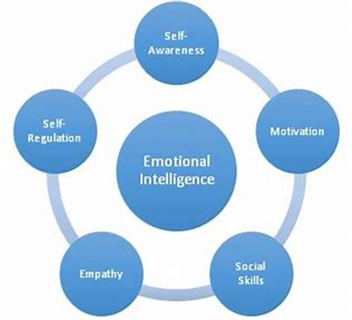Emotional intelligence

Emotional intelligence is one of the most important components of effective social interaction. Emotional intelligence is defined as the ability to understand and monitor our emotions, to talk about our emotions, and to recognise and respond to the emotions of others.
Research and studies of human behaviour have long focused on the role of emotional intelligence for children and adults. For children, effective emotional intelligence can support adaptation to different social settings, and help them to cope with the stress that school can bring. For adults, emotional intelligence helps us cope with relationships and work-related stress.
Components of emotional intelligence
Emotional intelligence includes several central components, as outlined in the diagram below: Self-awareness, motivation, social skills, empathy, and self-regulation.

Self-awareness includes:
- emotional awareness;
- self-assessment and understanding; and
- self-confidence and esteem.
Motivation includes:
- being motivated by social interaction;
- having a desire for reciprocity in relationships.
Empathy includes:
- consideration of the needs of others;
- awareness of surroundings.
Social skills include:
- leadership;
- develop others;
- change catalyst;
- influence;
- building bonds;
- communication; and
- teamwork.
Self-regulation includes:
- adaptability;
- self-control;
- conscientiousness;
- initiative;
- achievement orientation; and
- integrity and congruency.
Reflection
Reflect on the elements of emotional intelligence listed above.
- Which of the above emotional intelligence skills do you think are most important for adults, and why?
- Which of the above emotional intelligence skills do you think are most important for children and why?
Adapted from: Goleman, Daniel. Emotional Intelligence-Why it can matter more than IQ (1995)